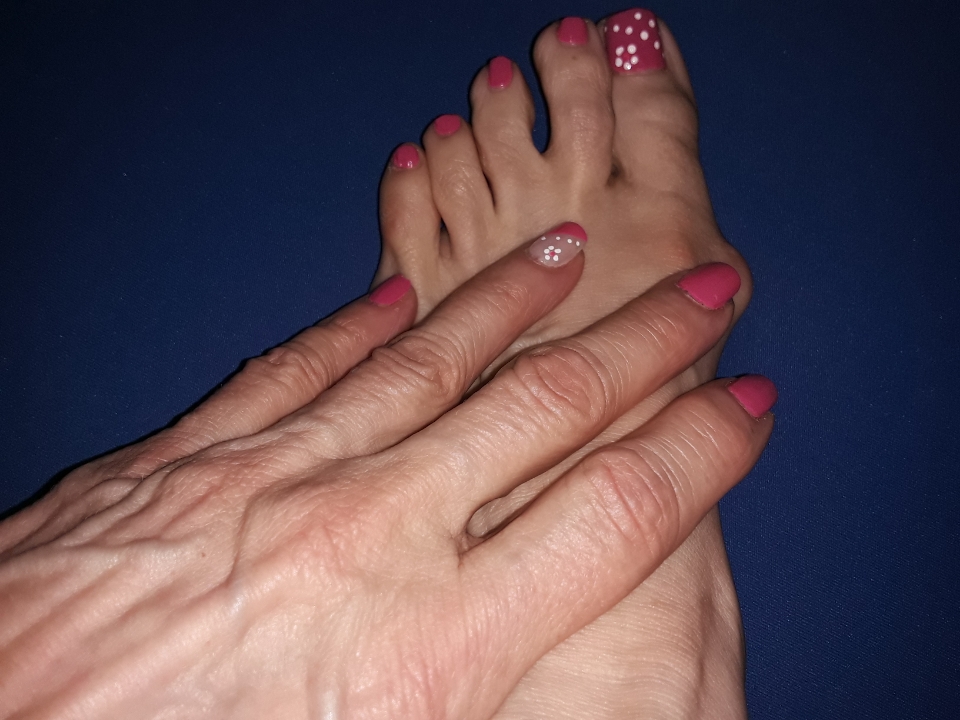A Russian Immigrant Manicurist’s Experience with the MVA
“Is not just Americans,” Tammy said. “In all countries people not necessarily nice or accepting of foreigners.” I had been sitting in her chair getting my standing Saturday manicure. This was her response after I was telling her about a book I’d been reading called, The Good Immigrant. The book is a collection of essays written by people who emigrated to the United States, most of whom did not find the land of wonders they had envisioned. This led to a discussion of her arrival here from Russia with her husband and 16-year old son in 1989.
“Well, had you learned English before you came here?” I asked, knowing that many countries teach English in school.
She laughed. “Leenda, I didn’t even know English alphabet! I leeve in tiny village vhere English not taught.”
“Well, what did you do? How did you manage not knowing the language?”
“My husband knew a leettle bit already, but ve vent togeder to a class for two months to learn English. I did not learn much. But real problem vas vhen ve had to get driver’s license. My husband had eye condition that made tings fuzzy and could not drive, so I had to get license. But vhen dey told me sit down in front of computer, I didn’t even know vhat computer vas, so I sat dere til a beeg policeman came and tap me on shoulder and tell me ‘time’s up.’ So I left.”
“Well then what happened?”
“I gonna tell you but first, Leenda, this nail is gonna break. I need to put in a piece to make it stronger as it grows.”
“Okay, do whatever you need to do.”
“Vell, I find out first you supposed to turn on computer and answer qvestions. So ve go back to do dat. Of course, I had not learned much English, and dere is much confusion about alphabet. For example, H in English is N in Russian. Vhat I sposed to do? So I sit dere til beeg policeman tap my shoulder and say, ‘Time’s up’ and I leave.”
“OMG! How did you figure it all out?”
“Somebody tell me ‘learn English letters, and you can do it’ so ve go back again, and I can peek out A or H or vhatever it says, but still need to know basic vords. Soon beeg policeman tap me on shoulder and say, ‘Time’s up.’”
“Den somebody give me paper vit qvestions dat gonna be on test. I study for several veeks and go back and sit at computer again, but I vas too slow. Ven I saw giant policeman approaching, I look at heem as he tap me on shoulder. ‘Time’s up.’”
“I studied some more veeks and returned. Same ting. Vhat dey expect, geeving me just 20 minutes? I bet dat American policeman couldn’t do it in Russian in 20 days!”
“Some veeks ve couldn’t go ‘cause vorking and busy, but I still vent many times, maybe 10, maybe more. I vent so much, I made friends vit some of da police and I acted as ambassador to odder Russians who vant to get driver’s license. I show dem vhere is restrooms, tell vhere to get food, anyting I can do to help. Finally, I pass. Yay! Dey should have had a party for me. Dey probably did for demselves after dey got rid of me. I can imagine dere relief!”
I laughed. “So did you get the license?”
“Not yet. Leenda,” she interrupted herself, “First you gotta tell me vhat color and design you vant today.”
“Definitely orange. We’re going to the Orioles game tomorrow.” She showed me some designs on her phone, and I chose one with black and white lines. “Okay, continue with the ‘big policeman.’”
“After I pass vitten test,” she continued her story, “I have to take driver’s test. I already knew how to drive, been doing it for years in Russia. But I still had to follow verbal directions of policeman. Did he say ‘turn left? Right?’ Who knows? He say I don’t pass ‘cause he say ‘turn left’ and I go straight!”
“Somevon tell me is much easier if you go to Vestminster. Dey are more patient. So I go dere, but it still took tree times because I vas so nervous. A teenager could do it in two minutes.”
Tammy’s story tickled me so much, especially hearing it in her Russian accent. She told me things are different now. There are translators available in several languages to help immigrants succeed. However, it’s her opinion that this may not be the best idea because sometimes the translator tells them the answers. Also, there’s less incentive for them to learn English. Many Russian immigrants never learn and live a very narrow life working with and living in communities of only Russians.
I was truly intrigued by this story, I asked Tammy, “Well, how did you live? What did you do for money?”
“My brudder sponsor us and find apartment for us to leeve. A Jewish organization called HIAS (Hebrew Immigrant Aid Society) help. Dey give us $100 a veek vhich ve eventually have to pay back. Dey help my husband get a job at Harvey’s restaurant vashing dishes, den promoted to making salad. He has many jobs over dese years.”
“What about his eye condition?” I asked.
“He had procedure and had it fixed. He’s been driving for years.”
I knew that Tammy had been a music teacher in Russia. I’d been going to her shop for years, and although we talked often about books and movies we liked, we discussed many personal topics. We knew each other’s health problems, issues with husbands and children, things women of similar ages often discuss. But I didn’t know much about her husband’s life before they emigrated.
“What was your husband’s profession in Russia?” I wondered aloud.
“He vas percussionist, playing drums, but language barrier made such vork impossible in America.”
“And how did you get to be a manicurist?”
“Vell, in beginning, I tried many jobs, but language always a problem. So finally, I get job in factory vhere people brought phones dat need refurbishing, and dey show me how to clean cords. Boring but not difficult. But I study English very hard, vork every day to get better. I read books by Danielle Steele ‘cause not too hard to understand and dis help me learn. Den I meet lady who say she can show me how to do manicure, and she did. I take certification test, and here I am!”
Read more by Linda Miller.


Such a cute story. Love reading it with my Russian accident, lol.
Aunt Linda, you always had a knack for writing! Your stories are amazing…especially the ones about our family!